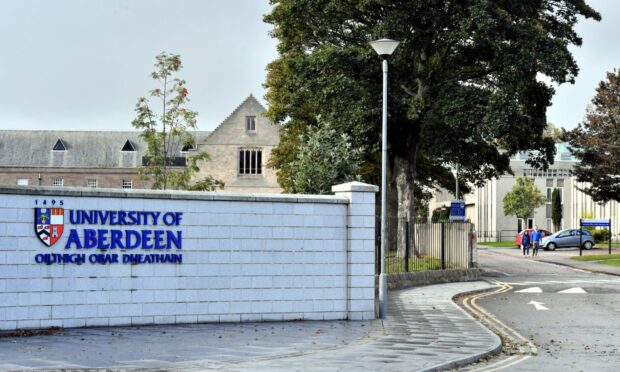Aberdeen University has been awarded the highest national honour in the UK for further and higher education.
The university’s research in soil science has been recognised with a prestigious Queen’s Anniversary Prize, which is granted every two years for outstanding work.
Its internationally renowned centre of excellence in soil science is striving to find solutions to the climate crisis and environmental change.
Scientists in Aberdeen have collected, interpreted and published data related to loss of biodiversity, degradation of soils, global pollution and food security – and have been pivotal in placing these on the global agenda.
‘A testament to the outstanding research’
Professor George Boyne, principal and vice-chancellor at Aberdeen University, said it is a “tremendous honour” to achieve the coveted prize.
He said: “It’s a true endorsement of Aberdeen University research making a real-world difference in two of humanity’s greatest challenges – climate change and the deterioration of our global soil resource.
“Understanding soils at all scales enables us to respond to the climate crisis, address food security and rebuild our loss of biodiversity.”
Professor Marion Campbell, vice-principal for research, added: “The award of a Queen’s Anniversary Prize is testament to the outstanding research being undertaken by our soil scientists at the University of Aberdeen.
“Delivering excellent research with impact is at the heart of our mission and I am delighted our work is being recognised in this way.”
Examples of world-leading research
More than 30% of UK leaders in soil science are estimated to have graduated from Aberdeen University.
Many now present on government science boards, research panels and international committees.
Researchers have been involved with a number of projects, including some which help to better inform climate change predictions and soil restoration measures.
The university has created a carbon calculator model for windfarms to assess the environmental impacts of wind turbines on vulnerable landscapes.
This is now hosted by the Scottish Environmental Protection Agency (Sepa) and contributed to a new policy to prevent exploitation of upland peatscapes.
Another project involved the development of a free to use greenhouse gas calculator called the Cool Farm Tool. It has been adopted by governments, NGOs and industry giants to establish and audit their carbon footprint.
World class performance
Professor Graeme Paton is representing the university at a special ceremony at St James’ Palace in London this evening.
The soil scientist, and head of the school of biological sciences, said: “Since the 1950s excellence in soil science has been synonymous with Aberdeen: in research, in education, in outreach, in technology transfer and in commercialisation.
“Like many colleagues and students, I came to Aberdeen because of its international reputation in soil science.
“This award is a tribute to our outstanding achievements of the past and for our current world class performance. This also reflects our foundations and ambitions for the future.
“The issues we face in maintaining sustainable soils are greater now than ever before and at Aberdeen we have the techniques, skills and team to face these challenges.”


